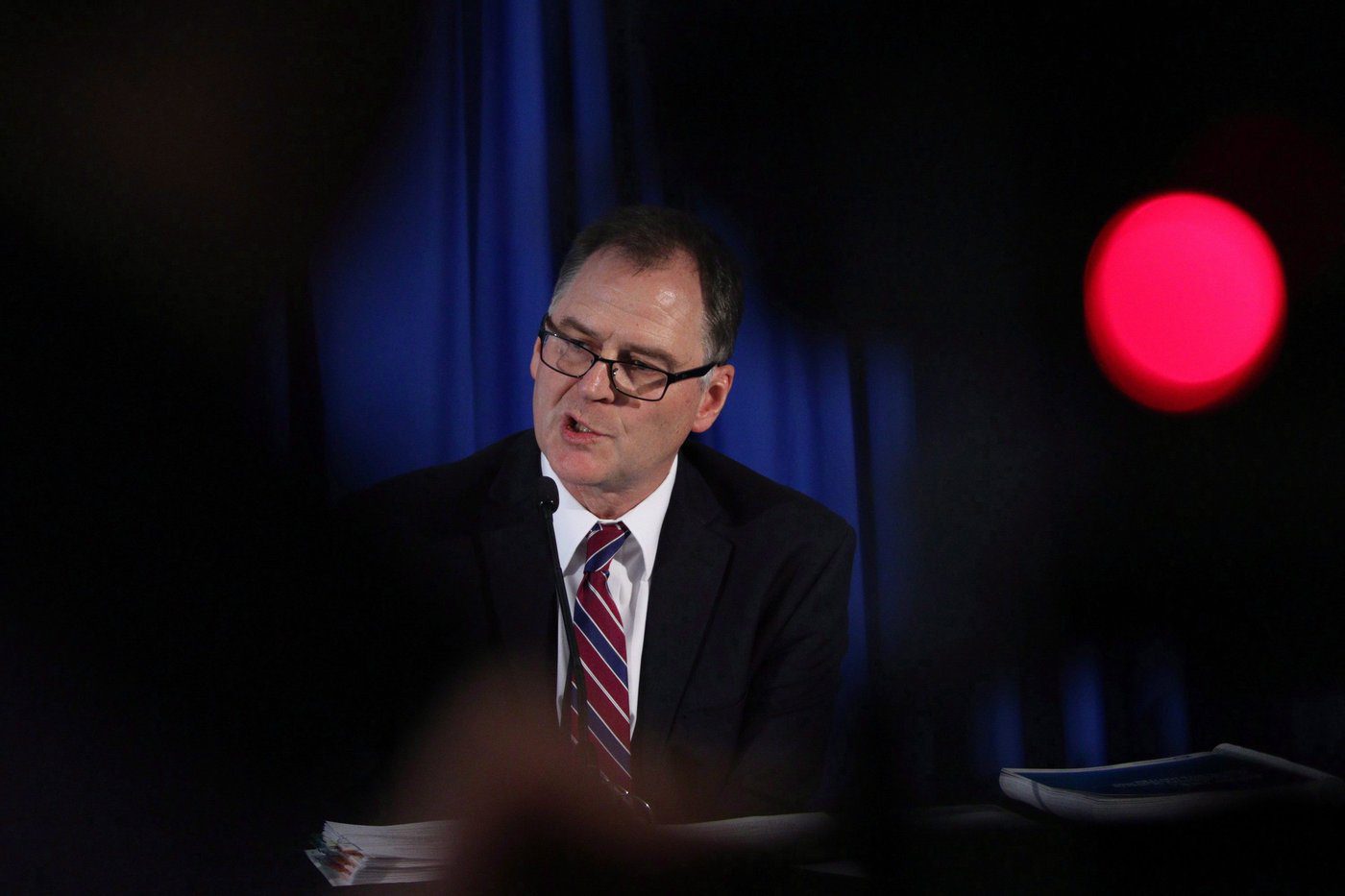VICTORIA — British Columbia’s Public Service Agency breached its own policy against hiring government appointees dozens of times over a 10-year period, a report from the provincial Ombudsperson says.
Jay Chalke said Monday that 64 jobs meant to help develop the careers of public servants wrongfully went to government appointees between 2013 and 2023.
In a report detailing the practice, Chalke’s office found “systemic mismanagement” at the B.C. Public Service Agency, allowing existing government appointees to apply for temporary positions despite a policy prohibiting it.
“The Public Service Agency has a written policy that, at face value, precludes (order-in-council) appointees from applying for internal temporary assignments in the public service,” Chalke said in a briefing Monday. “The stated rationale for the policy was to preserve these temporary assignment opportunities for regular public servants in order to support their career development.”
Order-in-council appointees, Chalke said, “include board and tribunal members, ministerial assistants and government communications staff.”
Chalke said the 64 temporary appointments went to ineligible people previously appointed under government orders-in-council, and they diverted career development opportunities from public servants.
The investigation began after Chalke’s office was tipped off by a government employee about two hirings at the Ministry of Social Development and Poverty Reduction, although the investigation didn’t turn up problems with those positions.
But his office found that despite the policy preventing government appointees from applying for temporary jobs, 205 did so between 2013 and 2023.
Chalke said awarding jobs to ineligible people constitutes “wrongdoing” by the agency under B.C.’s Public Interest Disclosure Act.
“This investigation uncovered conduct that caused both specific and broader harms,” he said. “Specifically, over a decade, 64 career public servants unfairly lost out on opportunities to advance their careers.
“Missing out on such opportunities can affect the trajectory of an entire career,” he said.
“This conduct undermined the public service’s commitment to the development of these employees, and systemic acceptance of a policy breach tarnishes the B.C. government’s reputation as a fair and principled employer,” Chalke said.
Premier David Eby said Monday that the findings of the report show that an extremely small number of appointments went to ineligible candidates, but Chalke “raises some important questions that we need to address.”
“But in terms of people’s confidence in the hiring and the public service and how we do that, I don’t have any concerns beyond the fact that we need to address this issue that the ombudsperson has raised,” Eby said during an unrelated news conference.
The report makes four recommendations, including changing procedures to screen-out ineligible candidates, informing ministers in writing about the policy, contacting appointees who apply for jobs to tell them they’re not eligible and compelling the agency to release a compliance report for the next three years.
In a letter earlier this month, Deputy Minister Deb Godfrey with the Public Service Agency told Chalke there were “tens of thousands” of jobs available during the 10 years covered by the Ombudsperson’s investigations.
Godfrey’s letter said many of the 64 appointments that breached policy involved a competitive process where the most qualified candidate got the job, though she acknowledged the appointees shouldn’t have been allowed to apply.
“These were not cases where an unqualified candidate was appointed to a job,” Godfrey’s letter said.
She said in the letter that the agency had worked in the recent past “to provide greater awareness” about the policy prohibiting appointees from seeking temporary public service jobs, “and will build on those efforts with the implementation of the Ombudsperson’s recommendations.”
— By Darryl Greer in Vancouver
This report by The Canadian Press was first published June 24, 2024.
The Canadian Press





